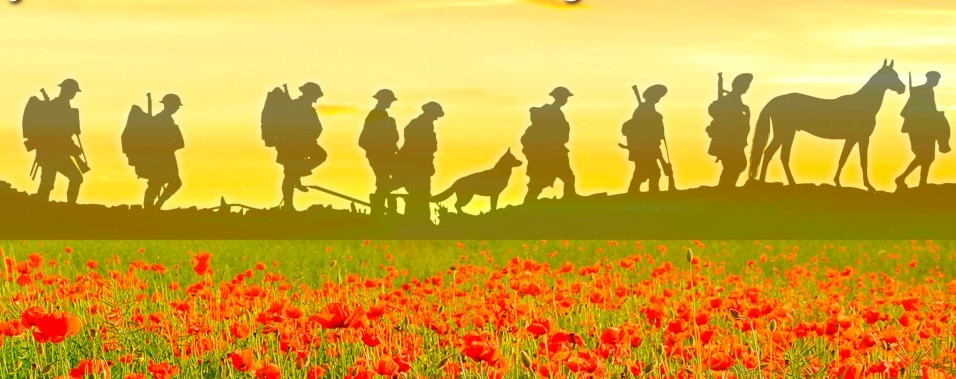
WE WILL REMEMBER THEM – LEST WE FORGET.
On Remembrance Day, the Australian War Memorial will host the nation’s key commemoration. This ceremony is attended by many high level dignitaries, students, politicians, thousands of general public, as well as diplomats. The key commemorative address will be delivered by the Governor-General of Commonwealth Australia and later by reciting some traditional remembrance poems along with wreath-laying.
In 1919, on the first anniversary of Armistice Day (later changed to Remembrance Day), an Australian Journalist Edward Honey (working in Fleet Street) came up with a proposal of paying two minute’s silence as part of the key commemorative ceremony for the war dead at the New Cenotaph in London. Concurrently, a South African Statesman made a similar proposal of two minute silence to the British Cabinet endorsing the proposal by Australian Journalist.
Simultaneously, King George V had a request to all the British Empire people i.e. suspending all the regular activities at the eleventh hour of the Armistice ‘which stayed the worldwide carnage of the four preceding years and marked the victory of Right and Freedom’. Since then the two minute silence proposal was popularly adapted by all the other allied countries and even became an important attraction and must to be followed feature of commemorations on Armistice Day.
The following year’s Armistice Day i.e. even the second anniversary holds some significance. Yes, on the second anniversary, there happened to receive the unknown soldiers remains from the battle fields of Western Front and the funeral ceremony had happened plus interred with full military honours in Westminster Abbey in London and at the Arc de Triumph in Paris. After the entombment, the Unknown Soldier’s tomb had attracted millions of people during the first week in London. Over time or we can say following many years, the tradition of entombing unknown soldier’s remains had been adapted by the other allied nations.
After Second World War, at the end, the name ‘Armistice’ was been changed to ‘Remembrance Day’ on 11th November and the decision was taken both Australian and British governments. Since then people consider ‘Remembrance Day’ as the appropriate title for a day on which the main commemorations are held for those who serviced in the wars and especially for the dead soldiers.
In Australia, the ‘Remembrance Day Ceremonies and commemorations again became the main focus on national media and gained a popular attention from public i.e. on 75th Anniversary of Remembrance Day. Yes, on 75th Anniversary in 1993, the remains of entombed Unknown Soldier were exhumed from the military cemetery belonging to First World War in Memorial Halls of Memory in France.
Later on the tradition of two minute silence and the proposal of suspending works at the eleventh hour on eleventh day of eleventh month had been adapted every year by all the allied countries small towns and cities.
After four years in 1997, Australian Governor General Sir William Deane provided a formal proclamation acknowledging November 11 as the Remembrance Day and re-established as the significant day of Commemoration. On the same day, He urged all the Australians to pay one minute silence every year on Eleventh hour (11am) of Eleventh day of Eleventh month (November 11th) in remembrance of those who participated, suffered and especially died for the cause of the Australian Nation in all the wars and conflicts.
IN FLANDERS’ FIELD
LIEUTENANT COLONEL JOHN MCCRAE, MD (1872-1918)
In Flanders’ Fields the poppies blow
Between the headstones, row on row,
That mark our place, and in the sky
The larks, still bravely singing, fly
Scarce heard amid the guns below.
We are the Dead.
Short days ago
We lived, felt dawn, saw sunset glow,
Loved and were loved, and now we lie
In Flanders’ fields.
Take up our quarrel with the foe:
To you from failing hands we throw
The torch; be yours to hold it high.
If ye break faith with us who die
We shall not sleep, though poppies grow
In Flanders’ fields.



